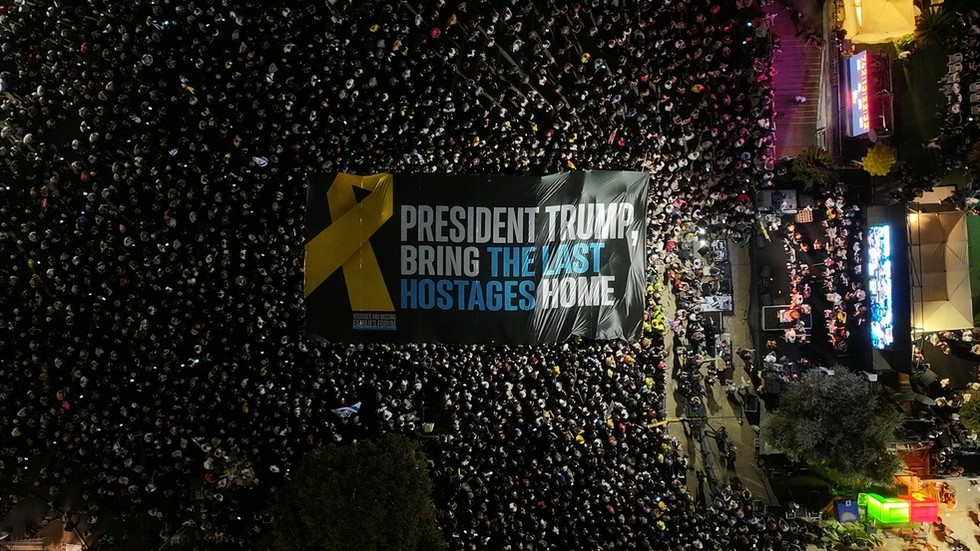Anger is brewing in France over Prime Minister François Bayrou’s draft 2026 budget, which includes scrapping two national holidays, freezing pensions and cutting €5 billion from health spending. Out of that discontent, a new protest movement dubbed “Block everything” ("Bloquons tout") has emerged, calling for nationwide demonstrations on September 10.
Launched on social media in July, the campaign has drawn early comparisons to the 2018-2019 Yellow Vest ("Gilets jaunes") protests – a grassroots revolt that began over fuel taxes and ballooned into a nationwide uprising against inequality, economic hardship and a political establishment seen as out of touch.
With Bayrou’s government facing a no-confidence vote on September 8, authorities are watching closely to see whether “Block Everything” can mobilise significant numbers.
Read more‘Block everything’: What we know about the movement to shut down France on September 10
A radical-left base
Unlike the Yellow Vests, who claimed to be apolitical, supporters of "Block Everything" lean heavily to the left, according to research published by the Jean Jaurès Foundation.
Nearly three-quarters of those surveyed said they were very interested in politics, compared with less than one in five of the general population. Some 69 percent voted for hard-left leader Jean-Luc Mélenchon in the 2022 presidential first round (versus 22 percent nationally), and 10 percent backed anti-capitalist candidate Philippe Poutou (against just 1 percent). By contrast, only 2 percent supported President Emmanuel Macron (28 percent nationwide) and 3 percent far-right leader Marine Le Pen (23 percent).
More than half of respondents (51 percent) placed themselves at the far left of the political spectrum, compared to just 3 percent of the French public. "If you broaden the scope, 86 percent describe themselves as belonging to the radical left," the study said.
A confidential police intelligence report, leaked by newspaper Le Parisien on Wednesday, described the movement’s current momentum as "mainly driven by political and civil-society activists from the far-left milieu and some union factions".
Social justice and climate at the core
Telegram chat groups linked to the campaign are filled with calls for a general strike and attacks on "ultra-rich capitalists", the foundation said.
The study showed that 54 percent of supporters cited rising inequality as a top concern, compared with 13 percent nationally. Other priorities included the environment (43 percent vs. 23 percent) and the health system (30 percent vs. 19 percent).
Immigration and crime – frequent themes in French politics – ranked low, with just 4 percent and 3 percent citing them, compared with 21 percent and 22 percent nationwide.
Supporters overwhelmingly endorsed redistribution: 91 percent agreed with the statement “To establish social justice, the rich should give to the poor” (versus 63 percent). Just 11 percent agreed that "Unemployed people could find work if they really wanted to" (60 percent nationally), and only 15 percent supported the idea that "There are too many foreigners in France" (against 65 percent nationally).
Read moreFrance’s far-right party urges snap elections after talks with PM Bayrou yield ‘no miracle’
Young, highly educated protesters
The profile of supporters also differs from the Yellow Vests, who had a strong base among retirees and rural workers.
A quarter of "Block Everything" backers are aged 25 to 34, far above the national average. Only 4 percent are over 70.
"This data suggests the movement is primarily structured by younger generations often at the heart of left-wing social mobilisation, while retirees – who played a significant role among the Yellow Vests – are largely absent here," the study said.
Education is another marker: more than half hold university degrees at bachelor level or higher. Students, professionals and managers are over-represented, while blue-collar workers and pensioners are under-represented.
Echoes of the Yellow Vests
Still, there are overlaps. Some 27 percent of respondents said they had taken part in the Yellow Vest movement, and another 61 percent said they had supported it.
Both groups are united by hostility towards Macron. In the 2022 presidential run-off between Macron and Marine Le Pen, 68 percent of "Block Everything" supporters abstained, cast blank votes or spoiled their ballots, compared with 35 percent of the wider public.
Another similarity is the call for direct democracy. While the Yellow Vests pushed for the "Citizens' Initiative Referendum" (abbreviated RIC), more than 80 percent of "Bloquons tout" supporters favoured referendums or citizens’ assemblies to decide laws, compared with 37 percent of the general population.
It remains unclear how large next week’s protests will be.
"The prospect of the government’s resignation has strengthened protesters’ determination," the police intelligence note cited by Le Parisien said, estimating that up to 100,000 people could mobilise across France on September 10.
This article was adapted from the original in French by Anaëlle Jonah.











 English (US) ·
English (US) ·